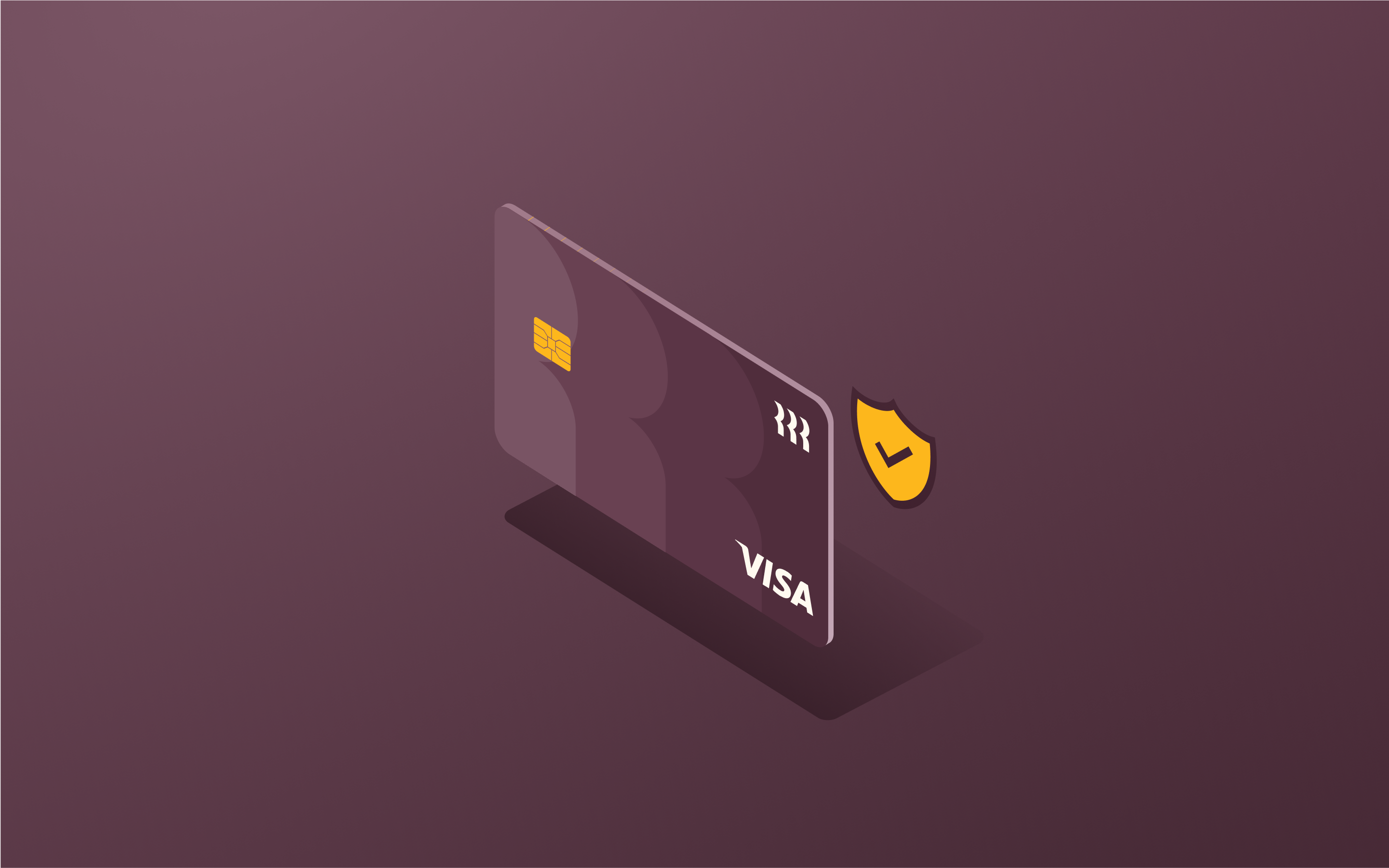The 5 best secured business credit cards & full guide

Managing business expenses efficiently is critical to scaling operations, especially for startups and small businesses. Business credit cards offer an accessible way to streamline purchasing, control employee spend, and build credit. But what if your business is new or rebuilding its credit profile? That’s where secured business credit cards come in.
In this guide, we’ll walk through what a secured business credit card is, how it works, and which ones offer the best value in 2025.
What is a secured business credit card?
A secured business credit card is a type of card that requires a cash security deposit to open and maintain the account. This deposit typically acts as collateral and determines your credit limit. If you deposit $2,000, your spending limit is generally set to that amount. Unlike unsecured business credit cards, which are issued based on your business’s creditworthiness, secured credit cards are designed for businesses with limited or poor credit history.
These cards function similarly to traditional credit cards: you can use them for purchases, make periodic payments, and carry a balance if needed. The key difference is the required security deposit, which reduces risk for the lender and makes it easier for new or credit-challenged businesses to get approved.
Secured business credit cards are ideal for:
- Startups without an established credit profile
- Small businesses aiming to rebuild credit
- Entrepreneurs who want to separate personal and business expenses while building business credit
Most issuers report payment activity to commercial credit bureaus, helping your business build a strong credit history over time. Some secured credit cards even offer the option to upgrade to an unsecured product after consistent, responsible use.
How a secured business credit card works
Secured business credit cards operate by requiring a cash security deposit that serves as collateral for the credit line. This security deposit usually equals the card’s credit limit. For example, a $1,000 security deposit typically gives you a $1,000 spending limit. The security deposit protects the card issuer in case your business is unable to pay the balance.
Once the account is open, you can use the card similar to other business credit cards: make purchases, pay vendors, or issue employee cards. Your business will receive a statement balance, and you’re expected to make at least the minimum payment each billing cycle. Carrying a balance may incur interest, depending on the card’s terms.
Pros and cons of a secured business credit card
Secured business credit cards can be valuable tools for businesses looking to establish or rebuild credit, but they aren’t the right fit for every company. Understanding the benefits and limitations can help you decide if this option aligns with your business needs.
Benefits of secured business credit cards
Helps build or rebuild business credit
Because secured credit cards typically report to major business credit bureaus, responsible use—like making on-time payments—can help you establish a solid credit history. This can improve your chances of qualifying for better financing options in the future.
Makes cards more accessible for new or credit-challenged businesses
Secured credit cards are often easy to obtain, even if your business has no credit history or a low credit score. The security deposit reduces the lender’s risk, which makes approval more likely.
Increases spend control
Since your credit limit is tied to your cash deposit, secured cards encourage more disciplined spending and can prevent overspending, especially useful for newer businesses still learning to manage cash flow.
Provides basic financial tools and features
Many secured cards still offer business essentials like transaction monitoring, employee card options, and spending summaries.
Drawbacks of secured business credit cards
Requires an upfront cash deposit
The need for a security deposit can be a barrier for some small businesses, especially those with limited working capital. These funds are typically locked up for the duration of the account.
Limits credit lines
Your credit limit is usually equal to the security deposit, which can restrict how much your business can spend, especially compared to unsecured or corporate cards that may offer a higher line of credit based on business performance.
Offers fewer rewards and benefits
Secured cards often lack the robust rewards programs, travel perks, or insurance protections that many unsecured business credit cards provide.
In short, secured business credit cards can be a smart starting point, but businesses should weigh the trade-offs and consider how long they plan to rely on a secured product before graduating to something more flexible.
How to choose the right secured credit card
Not all secured business credit cards offer the same features, so it’s important to evaluate your options based on your business’s financial needs and long-term goals. Here are the key factors to consider when choosing the right secured credit card:
Reports to business credit bureaus
To build or strengthen your business credit profile, choose a card that reports to at least one major commercial credit bureau, such as Experian Business, Equifax Business, or Dun & Bradstreet. Regular, on-time payments can help your business establish a positive credit history, which is essential for accessing future financing or unsecured credit products.
Deposit requirements and credit limit flexibility
Look closely at the required cash deposit amount and how your credit limit is determined. Some issuers offer flexible security deposit options or allow you to increase your credit limit by adding more funds. Others may periodically review your account and offer a path to upgrade to an unsecured card after demonstrating responsible use.
Fees and interest rates
Pay attention to the card’s fee structure, including annual fees, foreign transaction fees, and late payment penalties. Also, remember to compare APRs. While secured cards often come with higher interest rates, some offer more competitive terms than others. Understanding the full cost of the card can help you avoid unexpected expenses and better manage your cash flow.
The 5 best secured business credit cards in 2025
If your business is building or rebuilding credit, secured credit cards can offer the foundation you need. The best options combine accessible approval terms with useful business features like credit reporting, employee card access, and expense tracking. Here are five of the top secured business credit cards for 2025.
1. Bank of America® Business Advantage Unlimited Cash Rewards Mastercard® Secured credit card
This Bank of America business card is a standout for businesses seeking both credit-building potential and cashback rewards. It’s currently the only national bank to offer a secured business credit card.
Key features:
- 1.5% unlimited cash back on all purchases
- No annual fee
- $1,000 minimum security deposit
- Reports to all major business credit bureaus
- Available to customers nationally
It’s one of the few secured credit cards offering robust cash rewards along with no annual fee, making it a strong choice for everyday spending.
2. First National Bank of Omaha Business Edition® Secured Mastercard® Credit Card
This secured business card from FNBO is designed for companies focused on long-term credit-building and spend control.
Key features:
- Credit limits from $2,000 to $10,000, based on your deposit
- $39 annual fee
- Free access to your business credit score
- Reports to major business credit bureaus
- Subject to credit approval
With a reasonable deposit range and tools to help monitor credit progress, this card is a strong option for businesses ready to take early steps toward establishing solid financial footing.
3. Suncoast Business Secured Visa
Suncoast Credit Union’s secured business Visa provides a simple, low-risk way for small businesses with limited or no credit history to gain purchasing power while building credit.
Key features:
- Credit limit up to $15,000, based on your security deposit. (Larger limits available with lender approval.)
- No annual fee
- Earn one point for every dollar spent
- Liability protection against unauthorized purchases
- Employee cards available
Suncoast requires businesses to have been in operation for at least three years to qualify. This card offers a flexible limit and reward structure ideal for small businesses ready to build credit responsibly.
4. Pacific Premier Bank Business Edition® Secured Visa® Card
The secured business credit card from Pacific Premier Bank offers a straightforward path to building business credit.
Key features:
- Credit limits from $2,000 to $10,000, secured by a refundable deposit
- $39 annual fee
- Variable APR: 25.99%
- Reports to major business credit bureaus
This card is ideal for small business owners who want to establish or rebuild credit with manageable deposit requirements and essential security features. While it doesn’t include rewards, it provides reliable access to credit-building tools and standard business protections.
5. Valley Bank Visa® Secured Business Credit Card
A simple, straightforward option from Valley Bank for businesses looking to get started with secured credit.
Key features:
- Deposit of 110% of the desired credit limit, up to $25,000
- No annual fee
- Online account management tools
- Reports to major business credit agencies
Though rewards are limited, it’s a reliable, no-frills option for building credit.
Alternatives to secured business credit cards
While secured business credit cards are a great starting point for building credit, they aren’t the only option for managing business expenses. Depending on your company’s financial profile and goals, you may find a better fit in one of these alternatives:
Business charge cards
Business charge cards function similarly to credit cards but require you to pay the full balance each billing cycle. They typically don’t have preset spending limits, making them a good fit for established businesses with consistent cash flow. Charge cards often come with premium features like rewards programs, travel perks, and higher approval thresholds.
For instance, the Rippling Corporate Card is designed for businesses that want visibility and control of employee spending without the need for a security deposit. Integrated directly into the Rippling platform, the card lets finance teams instantly issue virtual or physical cards, set dynamic spend limits based on role or policy, and automate expense categorization. It’s ideal for companies looking to scale financial operations while maintaining real-time visibility and control.
Business debit cards
If you prefer to avoid credit entirely, a business debit card could be the right solution. These cards pull funds directly from your business checking account, eliminating the risk of interest charges or debt accumulation. While they don’t build credit, debit cards are useful for new businesses that want to control spending and avoid cash deposits or credit checks.
Prepaid business cards
Prepaid cards allow you to load a set amount of money in advance and use the card until the balance is depleted. Like debit cards, they don’t rely on credit and won’t help build your credit profile, but they’re useful for setting spending limits or giving employees access to funds without opening credit lines.
Each of these options comes with trade-offs in flexibility, credit-building potential, and accessibility. Consider your business’s current needs and future plans to determine which tool best supports your financial operations.
Is a secured business credit card right for your business?
A secured business credit card can be a smart choice for small businesses and startups that need to establish or rebuild credit. If your business lacks a strong credit history or has faced credit challenges in the past, secured cards provide a more accessible path to financing compared to traditional unsecured options.
These cards are particularly well-suited for:
- New businesses without a credit track record
- Entrepreneurs looking to separate personal and business expenses
- Companies aiming to qualify for better financial products over time
Before applying, consider whether you can afford the required security deposit, which typically becomes your credit limit. If locking up capital is a concern, or if you already have a solid credit profile, an unsecured card or business charge card may offer more flexibility.
Also, think about your long-term goals. Many secured cards report to commercial credit bureaus, which means consistent, on-time payments can help improve your business credit score. Some issuers even offer the option to transition to an unsecured card after demonstrating responsible use.
Ultimately, if you're focused on building financial credibility and accessing more favorable credit terms in the future, a secured business credit card can be a valuable stepping stone.
Manage business expenses better with Rippling's corporate charge card
If your business is ready to move beyond secured credit, Rippling’s corporate charge card offers a powerful alternative. There are no personal credit checks, no security deposits, and full integration with your workforce systems.
Unlike traditional business cards, Rippling’s corporate card is built directly into its all-in-one platform, so finance teams can control spend with the same system they use to manage payroll, benefits, and employee onboarding.
With Rippling’s corporate card, you can:
- Issue physical or virtual cards instantly to employees
- Set granular, policy-based spend controls by department, role, or individual
- Automatically categorize transactions and sync with accounting software
- Monitor company-wide expenses in real time
Best of all, Rippling dynamically adjusts credit limits based on payroll and cash flow, so there’s no need for lengthy applications or personal guarantees.
Whether you're scaling your team or streamlining expense approvals, Rippling gives you complete visibility and control over every dollar spent.
FAQs about secured business credit cards
What is the difference between a secured and an unsecured business credit card?
A secured business credit card requires a refundable security deposit that acts as collateral, while an unsecured card does not. Secured cards are often easier to qualify for, especially for businesses with limited or poor credit, but typically offer lower credit limits and fewer perks.
How do you get a business secured credit card?
To get a business secured credit card, you’ll typically need to apply with your business’s legal name and Employer Identification Number (EIN). Most issuers also require a personal guarantee and a security deposit, which determines your credit limit. Approval is generally easier than with unsecured options.
Can I use my EIN to get a credit card?
Yes, many issuers allow you to apply for a secured credit card for business using your EIN. However, some may still require your Social Security Number and a personal credit check, especially if your business lacks an established credit history.
What is the easiest business credit card to get approved for?
Small business secured credit cards are often the easiest to get approved for because they require a security deposit and present less risk to the issuer. These cards are ideal for new ventures or entrepreneurs looking for business credit cards to build credit.
Can a new LLC get a business credit card?
Yes, a new LLC can typically qualify for a small business credit card to build credit, especially if it applies for a secured business credit card. Many card issuers are open to working with startups, particularly when a personal guarantee and security deposit are provided.
Disclaimer: Rippling and its affiliates do not provide tax, accounting, or legal advice. This material has been prepared for informational purposes only, and is not intended to provide or be relied on for tax, accounting, or legal advice. You should consult your own tax, accounting, and legal advisors before engaging in any related activities or transactions.
The Rippling Corporate Card is issued by Fifth Third Bank, N.A. Member FDIC, and Celtic Bank, Member FDIC, pursuant to a license from Visa® U.S.A. Inc. Visa is a trademark owned by Visa International Service Association and used under license. Third parties listed are not affiliated with Fifth Third Bank or Celtic Bank and are solely responsible for their products and services. All trademarks are the property of their respective owners.






